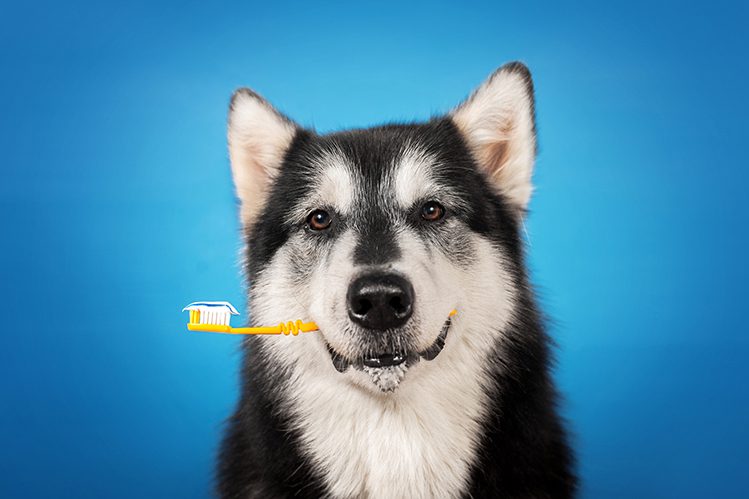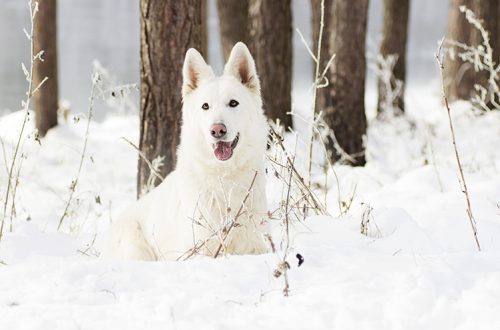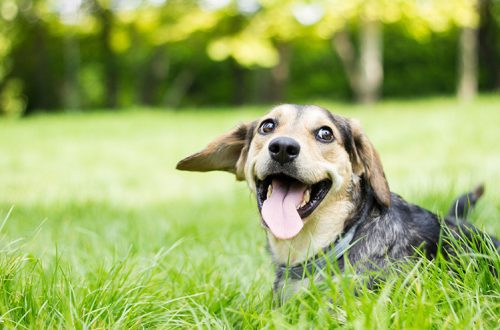
Dog Dental Care
How to take care of your dog’s teeth? And do you need to take care of them at all? These questions arise before every responsible pet owner. In their natural habitat, wolves, jackals, and coyotes – the wild relatives of dogs – do just fine without dental toys, treats, special toothbrushes, and pastes. And what about pets?
Unlike wolves, coyotes and jackals, domestic dogs do not have to participate in natural selection and fight for survival. This has not only pluses, but also minuses. A striking example is the health of the dental apparatus.
In nature, the jaws of a wolf will always find a use. The beast hunts, butchers prey and eats not only meat, but also tendons, cartilage, and bones. Hunting trains the muscles of the jaw, and hard food naturally cleans plaque from fangs. With a weak dentition, the wolf simply would not have survived!
With domestic dogs, things are different. Unfortunately, about 80% of dogs have oral diseases by the age of two. In many cases, the problem is not detected immediately, but at the moment when complications have already developed. The owners do not give due attention to plaque and tartar and are in no hurry with treatment. But tartar provokes periodontal disease, gingivitis and other complications. As a result, the pet suffers, and veterinary dentistry is very expensive. How to avoid it?
The oral cavity of a dog of any breed requires regular care. Basic care is brushing teeth with special toothpaste for dogs or special dental diets.
Brushing your teeth is a very effective method of preventing oral diseases. Using a special brush and paste, you can remove 30% of plaque from your pet’s teeth in just 80 seconds. The only difficulty lies in accustoming the dog to the procedure. If you start learning from childhood, problems, as a rule, do not arise. The puppy perceives hygiene procedures as a game and another opportunity to communicate with the owner. It is already more difficult to make friends with an adult dog with a brush. Perhaps that is why the dietary approach in our country is more popular.

The dietary approach involves the use of special food that effectively cleans teeth and prevents diseases of the oral cavity. It is an alternative to the natural diet of the wild relatives of dogs in the wild. Let’s take a look at how this diet works using the example of Eukanuba food for adult and senior dogs with the 3D DentaDefense system. This system prevents diseases of the oral cavity as follows:
Special S-shaped kibble formula for maximum tooth-feed contact. In the process of chewing, such a granule comes into contact with almost the entire surface of the tooth and mechanically removes plaque.
An active ingredient, sodium tripolyphosphate, is applied to the surface of the granules, preventing the formation of tartar. Studies have shown that this technique reduces the risk of tartar formation by almost 70% compared to conventional dry food.
Fortification with calcium. Optimal calcium levels promote healthy teeth and bones.
As a result, care for the oral cavity of the pet is provided with little or no participation of the owner. The owner simply gives the pet special food – and his health is protected.
The maximum effect is achieved through an integrated approach. If you combine brushing, diet, and dental toys, treats, or special nutritional supplements (such as ProDen PlaqueOff), the risk of oral diseases is minimized.
However, even armed from all sides, do not forget about preventive visits to a veterinarian. Your dog will thank you!





